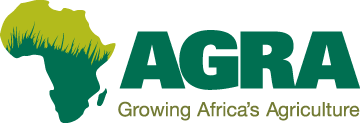Background
Agriculture is the most important livelihood sector in Africa, contributing to over 50% of GDP. African countries committed to implement the Comprehensive Africa Agriculture Development Programme (CAADP), a continent-wide agenda to transform Africa’s agriculture. Through CAADP African countries are working towards using agriculture as pathway to meet the Sustainable Development Goals of ending hunger and poverty. African countries aim to achieve these CAADP goals by building the capacity of champions, institutions and stakeholders to develop, lead and manage the structures needed for African-led agriculture transformation. Availability of quality data and information are critical to facilitate evidence- based policy design, planning, programming and monitoring and evaluation to ensure effective achievement of intended agriculture sector development outcomes.

Although the importance of having strong data systems in the agriculture sector is well appreciated in Africa, this is an area where many African countries still face major challenges. Agricultural information and data on the continent are poorly collected and managed, compromising evince-based decision making across the agricultural value chain. For instance, the information collection and linkages between the policy making organs (ministries) in government, and the downstream stakeholders (farmers, research and extension, agro-dealers, markets, input providers, etc.) along a production chain are often weak or non-existent. The project seeks to contribute towards addressing these data related challenges in four countries (Burkina Faso, Ghana, Malawi and Mozambique) from 27th May 2019 to 26th May 2021. By strengthening capacity of the technical officers involved in agriculture monitoring and evaluation (M&E) in the project countries, it is envisaged that this project will contribute significantly to the implementation of the CAADP principle of mutual accountability to results and evidence-based policy and planning. The project is funded by the United States Agency for International Development (USAID) and implemented through a grant by AGRA to the RCMRD. The key project implementers are the RCMRD, AGRA and the government agriculture ministries in the project countries.
Objectives, Outputs and Outcomes of the Project
The goal of the project is to build the capacity of governments' ministries of agriculture to monitor agricultural value chain investments using Geographical Information Systems (GIS) and Earth observation information thereby strengthening their capacity for evidence-based policy, programming and M&E. Specifically, the project will deliver the following outputs:
a) Geo-information System/ Portal for tracking key CAADP indicators and agriculture investments in each of the project countries (Burkina Faso, Ghana, Malawi, Mozambique). The country portals will have modules to facilitate analytics to answer specific decision-making questions in the agriculture sector ministries.
b) Capacity strengthening on the use of remote sensing and GIS data for agricultural decision-making
c) Training of the technical officers in the government to effectively track key changes in the agriculture sector
d) National maps on crop suitability, climate risks, soil properties generated annually













